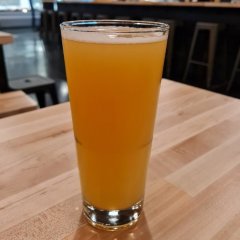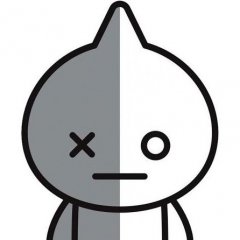Search the Community
Showing results for tags 'opposition'.
-
https://www.straitstimes.com/politics/parliament-sets-out-duties-and-privileges-of-leader-of-the-opposition-pritam-singh?utm_source=STSmartphone&utm_medium=share&utm_term=2020-07-28+17%3A07%3A04 Parliament sets out duties and privileges of Leader of the Opposition Pritam Singh SINGAPORE - As the official Leader of the Opposition (LO), Workers' Party chief Pritam Singh will be given certain parliamentary privileges like the right of first response among MPs. He will also have the right to ask the lead question to ministers on policies, Bills and motions, subject to existing speaking conventions, the offices of the Speaker of Parliament and the Leader of the House said in a joint statement on Tuesday (July 28). The statement set out the duties of the new role, as well as the parliamentary privileges and resources accorded to Mr Singh, who is an MP for Aljunied GRC. He will receive confidential briefings by the Government on "select matters of national security and external relations, and in the event of a national crisis or emergency", the statement said. As the LO, Mr Singh will also have more time for his speeches, equivalent to that given to political office-holders. According to the Standing Orders of Parliament, all MPs are allowed to speak for 20 minutes in response to questions raised, and can address a committee of the whole of Parliament for up to 10 minutes. Ministers and parliamentary secretaries are entitled to speak for up to 40 minutes. In terms of additional resources, Mr Singh will receive an allowance that is double that of an elected MP, or $385,000 a year, the statement said. As for staff support, he will receive additional allowance to hire up to three additional legislative assistants, on top of the allowance that all MPs receive to hire one legislative assistant and a secretarial assistant. He will also be provided a secretary to support him administratively with parliamentary business. Mr Singh will have an office and the use of a meeting room in Parliament House.
- 743 replies
-
- 5
-

-
Lai lai lai.. prepare your popcorns for another new year of drama, finger pointing, scandals, plot twists, and maybe even some tears dropping (again) in da House!
- 39 replies
-
- 7
-
.png)
-

-
- parliament
- pap
-
(and 2 more)
Tagged with:
-
This fumbling minister not shy. Still dare to talk big. Singapore Home > Breaking News > Singapore > Story Mar 24, 2011 DPM Wong Kan Seng fires salvo at the opposition DEPUTY Prime Minister Wong Kan Seng fired a salvo at opposition parties on Wednesday. He argued that the opposition was wanting to capture a GRC for the wrong reasons. 'Some say they are doing it for party renewal, some want to be the first ones to do so, but what is the election about? Is it about the ambitions of a political party or individuals to make history?' said Mr Wong, who is also Coordinating Minister for National Security, and an MP in Bishan-Toa Payoh GRC. He was referring to comments made by opposition leaders Low Thia Khiang of the Workers' Party and Chiam See Tong of the Singapore People's Party in recent weeks on their plans to possibly contest in a GRC. He urged voters to back the stronger team that can serve them better, and not simply for the sake of having more opposition, especially at a time of global uncertainty when Singapore must keep pace or risk being left behind. He noted that Parliament will have at least nine opposition MPs after the next election under the Non-Constituency MP scheme even if they are not elected. Mr Wong was speaking at a media conference held on Wednesday to introduce three new candidates for the People's Action Party at the party's headquarters in Bedok. They are Ms Foo Mee Har, 45, Standard Chartered's global head of premium banking, Mr Steve Tan Peng Hoe, 38, executive secretary of Young NTUC, and Mr Desmond Lee Ti-Seng, 35, associate director in the legal and regulations department of Temasek Holdings, the government's investment arm.
-
Tan Cheng Bock forms a new political party - Progress Singapore Party.
- 973 replies
-
- 23
-

-
- tan cheng bock
- political party
- (and 6 more)
-
-
- parking fuel
- season parking
-
(and 2 more)
Tagged with:
-
https://www.nytimes.com/2018/09/23/world/asia/maldives-elections.html NEW DELHI — The Maldives, the isolated scattering of islands caught in a geopolitical struggle between China, India and the West, were thrust into more uncertainty Sunday when voters appeared to have ousted the country’s autocratic president. With votes still being tallied, local news organizations reported that Ibrahim Mohamed Solih, the opposition candidate, had beaten President Abdulla Yameen. Mr. Solih won 58 percent of the vote with about 97 percent of ballots counted, according to the independent news websitemihaaru.com. Transparency Maldives, an election watchdog, said he had won “by a decisive margin.” As Mr. Solih declared victory and his supporters danced in the street, observers held their breath as they waited to see what Mr. Yameen would do next. His campaign had yet to concede by early Monday morning, and a spokesman for the Maldives’ Election Commission said official results would not be announced for a week, according to Reuters. “This is a moment of happiness, this is a moment of hope, this is a moment of history,” Mr. Solih said at a news conference at midnight. He said, “I would like to call upon Yameen and ask him to respect the will of the people and to immediately begin the smooth transition of power as per the Constitution and the law.” With Mr. Yameen hoping to solidify his hold on power with a second term, the opposition had warned that the Maldives’ nascent democracy was at stake in the election. Accusations of fraud have plagued both sides. As polling stations opened on Sunday, lines of voters snaked down streets in the Maldives and in countries with large Maldivian communities, like Sri Lanka, suggesting a high turnout. Lying southwest of India, and stretching across maritime routes that are crucial to China, the Maldives has been caught up in recent years in Beijing’s growing global ambitions, which the United States and its allies have struggled to contain. China has spent hundreds of millions of dollars on infrastructure projects in the Maldives, which critics, including the political opposition, warn amount to “debt-trap diplomacy” that weighs down the recipient country with loans in order to secure a naval base as repayment. The governments of both countries reject that assessment. Even before the elections on Sunday, Mr. Yameen had been accused of rigging them, forcing employees of state-owned companies to vote for his party, stacking the election commission with loyalists, locking up opposition leaders and canceling voter registrations. On Saturday night, the police raided the opposition’s office in the capital, Malé, citing evidence of vote-buying. This month, the police said they had unraveled a plot to “create the false impression that the election will not be free and fair,” which Western diplomats warned could be used to annul the elections if the governing party does not win. The United States said this month that it would impose sanctions on Maldivian officials if the elections are not free and fair. But both the European Union and United States declined to send teams to monitor the voting, wary of appearing to condone them. The election pitted Mr. Yameen’s governing Progressive Party against a unified opposition led by Mr. Solih, a senior lawmaker from the Maldivian Democratic Party. The Maldives became a democracy in 2008, when it held its first vote to elect a president directly. Mr. Yameen came to power in 2013, after elections monitored by more than 100 international observers. Since then, he has jailed his political opponents, including his half brother, Maumoon Abdul Gayoom, who led the country for 30 years until opening it up in 2008, and Muhammed Nasheed, the first democratically elected president. The opposition rallied behind Mr. Solih after many opposition leaders, including Mr. Nasheed, fled into exile. Many observers had said the opposition would win if there were a level playing field. For the first time in three years, it was permitted this month to hold a rally, after the government came under pressure for not issuing permits in the past. Around 10,000 people attended, about twice as many as at the governing party’s rallies, though in the past the government has used force to stifle protests and dismissed dissenters as terrorists. “There is a huge popular groundswell in favor of change,” said Mr. Solih’s campaign manager, Mariya Ahmed Did. “President Yameen was not given a mandate to trample all over Maldivian democracy and our Constitution, but that is what he has done these past five years.” She said, “The Maldives risks becoming just another banana republic.” Mr. Yameen’s campaign manager, Adhlee Ismail, denied in a brief telephone interview that the elections had been rigged. The Chinese government has been a consistent supporter of Mr. Yameen despite his crackdown on dissent. In February, Beijing sent a naval force to linger off the coast of Malé after Mr. Yameen sent troops to burst into the Supreme Court and jailed two of its justices after they overturned the convictions of opposition politicians. Mr. Yameen then declared a state of emergency and prevented Parliament from meeting for a while. Even if Mr. Yameen were to lose, China’s influence would not simply be rolled back, some observers say. The United States and India are unwilling or unable to match the billions of dollars Beijing has invested in cash-starved regions of South Asia as part of its “One Belt, One Road” initiative. China is spending about $62 billion in Pakistan alone as part of the program, tilting another American ally further into its axis. “If President Yameen loses, China will be able to work with the next leader, as it has shown in the case of Sri Lanka after the 2015 election,” said Nilanthi Samaranayake, a South Asia analyst at the Center for Naval Analyses, a think tank based in Arlington, Va. For small nations in the region, China’s appeal as a source of money for development “transcends domestic politics,” she said. Many in the Maldives and elsewhere are wary of China’s increasing military interests. Despite assurances to the contrary, Beijing has steadily bolstered its presence on a collection of disputed reefs in the South China Sea, eventually building bases there. The Maldives, which is included in China’s One Belt, One Road plans, has received about $2 billion in Chinese loans that critics say will be difficult to repay. The Chinese initiative has been likened to the United States’ ambitious Marshall Plan in Europe after World War II, but the Marshall Plan was mostly composed of grants rather than onerous loans, critics argue, and went toward economically viable projects. Mr. Yameen has been racked by accusations of corruption, including reports that he plans to sell some of the 1,200 islands that make up the Republic of Maldives for his personal gain, a charge he has denied. Although the Maldivian government said international journalists were welcome to report on elections, many — including from The New York Times — were unable to secure visas to enter the country.
-
LHL says no need for opposition since most of the population supports the PAP and they have put in Non-Constituency MP in today's ST report http://www.straitstimes.com/politics/not-wise-to-purposely-let-the-opposition-grow-bigger-says-pm Are these Non-Constituency MP what people want other than those participated in the election and how have they performed? Is a one party that has been debated over the years still what people want? Is the idea of not to "purposely" let the opposition grow bigger being the same as making sure they don't grow? How are we going to get another voice in the parliament? If you have most of the resolutions passed in parliament with almost 100% yes, we need to review why then some of these decisions failed. All that have voted yes are not thinking enough or simply complying. Mr Lee also stressed the importance of thinking boldly, and long-term yesterday. The thinking must start from the top not bottom up. Any thoughts?
- 46 replies
-
- 3
-

-
- opposition party
- politics
-
(and 5 more)
Tagged with:
-
It is obvious that any opposition will command 30% votes in any contest and WP reputation will add 10% to it and good candidates + issues concerning Singaporeans will swing the vote for opposition to victory. I hope those in the opposition camp realised that, especially people like Desmond Lim and some parties like NSP. In fact, I hope NSP realised that some of their dead wood must go. Nicole Seah factor alone can get better % than Tampines GRC team under Goh Meng Seng and that itself is a surprise to me, though I do like what Nicole Seah has said and done to influence his peers and put a lot of old timers to shame. If I have my way, there will only be 2 opposition parties in Singapore and that is the WP and SDP.This 2 parties have clear objectives and know where they stand. To me NSP is just not branded enough to make Singaporeans know where they stand. Moreover WP and SDP are the ones who have won in elections before, so at least they have the name there. For SPP and Chiam, I wouldnt consider them anything significant and especially since Chiam was the one who founded SDP. For that I propose SPP to merge with SDP with Chiam be given a special position in the party. It was reported that Chee did tried to invite Chiam back but he declined. NSP should merge with WP. And Reform party either WP or SDP. Kenneth's father JBJ was from WP so that make sense but RP's stand seem to be more closer to SDP's so either merging with one of them is fine with me. That will make the opposition parties stronger and can field good candidates in one GRC. As for SDA, they can close shop, even though I voted for them in Pasir-Ris Punggol GRC. I am very sure if a WP team contest in my ward it will be much closer. And a WP team in AMK GRC will see LHL's vote drop to less than 60%.
-
Education Minister Heng Swee Keat hit back swiftly at opposition Workers' Party claims that residents of Punggol East should vote for them to make the PAP "work hard". "PAP has been working hard to come up with various ways to help Singaporeans even when they was no opposition in Parliament," he told reporters at a community event at Tampines Central Temple. Referring to WP chief Low Thia Kiang's rally message on Saturday that people should vote for WP to keep up the pressure on PAP, Minister Heng turned the tables and said, "People should vote for PAP instead to make the WP work hard. "Voters should look at what the various (PAP) MPs have done and contributed in their constituencies and in Parliament," he said. "And I think they will come to the conclusion that they should vote for the PAP to make the Workers' Party work harder for you". He also took pains to remind voters of Punggol East that it's "not about voting more opposition into Parliament". "It's important to understand what this by-election is about. It's about electing the best candidate who can serve the residents of Punggol East," he said, adding that PAP candidate Koh Poh Koon is a "sincere and hardworking man" who understands the needs of residents and will work hard to improve their lives. Minister Heng said after the last General Election in 2011, Singaporeans had given the PAP the mandate to form the government. And the government has been working hard because "it is our duty and honour". He highlighted the recent changes in education as one example of the PAP listening to ground sentiments. "We have been investing in and improving our education system all these years even when there was no opposition in Parliament," he said. Meanwhile, PAP candidate Koh also addressed WP rival Lee Li Lian's claims that as a female voice, she would bring something different into Parliament if she were elected. "Well, I think selecting an MP really is selecting someone to serve the needs of the wide spectrum of the population, so gender shouldn't really play a role," said Dr Koh at a separate walkabout in Punggol East, where he met church-goers outside St Anne's chuch. "All MPs should take care of different segments of the demographic equally well, so I think the selection shouldn't be about gender per se," said the colorectal surgeon, 40. "And I think even at this present moment, we are all trying our best to also take care of different segments: women, children, elderlies and the youths as well". Dr Koh also said he plans to build a new community centre behind the Rivervale Plaza, on top of a wellness centre for the elderly. "We want to put in place more health screening programmes so we can detect diseases earlier, and to do some preventive kind of management for those diseases in the early stages. What we want to do is to leverage on the building of the new CC to in-build some of these programmes and facilities in place," he said.
- 43 replies
-
Personally, I feel that some netizens, in their support for the opposition, are actually doing more harm to the opposition cause. The opposition politicians generally try to portray a better front and it is sometimes destroyed by their supporters, or to be fair, people who claim to be their supporters. An example is Chee Soon Juan. Personally, I dun like him because of what he did to Chiam See Tong but I would vote for him and his party in any elections against the PAP as I believe in the opposition cause. From what I have read about him so far, in tremeritus (not MSM), he seems to have mellowed down and changed for the better. Yet, his supporters do more harm to his name and the opposition cause by praising him (not wrong) AND denigrating workers party as well, to the extent that voting for workers party is akin to voting for PAP. This harms Dr Chee's image and also pull the fence sitters away from workers party. This only benefits PAP. If you look carefully, NONE of the other opposition polticians do anything to hurt the opposition cause from their words but the comments from their supporters causes damage. Netizens (some) also have a tendency not to look objectively at situations and turn anything into bashing PAP which will do nothing to convert the fence sitters. Moles exist. Some "supporters" are moles actually who try to destroy the opposition. Politics is dirty. I hope no true supporter inadvertently causes more harm.
-
Looks Bad Yahoo News
- 15 replies
-
- pore
- opposition
- (and 4 more)
-
Isn't the photo on top taken from GE2011? Opposition-party supporters then anyhow say this was WP rally on Saturday!
- 30 replies
-
- opposition
- supporters
-
(and 1 more)
Tagged with:
-
Hougang by-election to take place on May 26 Published on May 9, 2012 Hougang voters will go to the polls on May 26 in a by-election to fill former Workers' Party MP Yaw Shin Leong's seat in Parliament. The writ of election was issued today by the President, stating that Nomination Day will be on May 16, after which nine days of campaigning will commence. Despite rampant speculation, PM Lee did not call for a by-election in any other constituency, limiting it to Hougang's 25,000 voters. The Hougang seat became vacant after Mr Yaw was expelled from the WP on Feb 14 for refusing to account to the party leadership for his behaviour, including allegedly having extra-marital affairs.
- 192 replies
-
- Opposition
- party
-
(and 3 more)
Tagged with:
-
SINGAPORE: From this year, Singaporeans will get absolute priority over permanent residents when it comes to balloting for primary school places. The Education Ministry said where balloting is required during Primary One registration, Singaporeans will be admitted first ahead of permanent residents, before home-school distance is considered. For example, when the number of applications exceed the number of school places, Singaporeans who live closer to the school of choice will get higher priority compared to Singaporeans who live further away. Citizens living within one kilometre will be admitted first, followed by those who live between one kilometre and two kilometres from school. Singaporeans who live outside two kilometres of the school of choice will then be given a place. If there are still vacancies in the school after all eligible Singaporean children have been admitted after balloting, places will be given to permanent residents, with priority given to those who live closer to school. MOE said by giving Singaporeans priority over PRs only when balloting is required, it retains the underlying principles of the Primary One registration framework, which reflect a careful balance of considerations, and provide for diversity in Singapore schools, while according citizens a further privilege. This is on top of a measure introduced in 2010, where Singaporeans are given two ballot slips for each child for Primary One registration, while PRs get one ballot slip per child. MOE also announced that there will be seven new primary schools next year - five in the new towns of Sengkang and Punggol, and one each in Jurong West and Woodlands. http://www.channelnewsasia.com/stories/sin...1191133/1/.html
- 728 replies
-
- THANK
- opposition
-
(and 2 more)
Tagged with:
-
Yahoo News Opposition parties criticise PA letter Two opposition parties have criticised a recent letter by the People's Association (PA) on why opposition Members of Parliament (MPs) cannot be advisers to grassroots organisations (GROs). "I can only conclude that the PA is partisan," said Hougang SMC MP Yaw Shin Leong, pointing out that organisation seemed to be equating the government with the ruling People's Action Party (PAP) in its forum letter. "The government and the said political party needs to be separated in terms of identity," Yaw said. "Over the decades, however, the two seem to have been increasingly seen as the same." The Singapore People's Party echoed this view. "By choosing not to work with duly elected Opposition MPs, the PA is confirming that it is working for the interest of the PAP, not Singapore," the party's central executive committee said in a statement. In a forum letter to The Straits Times published on Wednesday, PA's director for corporate and marketing communications Ooi Hui Mei said that opposition MPs cannot be advisers to GROs because they "cannot be expected" to promote government activities. "The government has to appoint grassroots advisers who support its programmes and can play this role well... Opposition MPs cannot be expected to do this and thus cannot become advisers to GROs," wrote Ooi. She further explained that "besides connecting people to people, grassroots advisers are required to help the government connect with people and help promote government policies and programmes such as anti-dengue and active ageing." Ooi was responding to a reader who felt grassroots advisers, who are appointed by the PA, should be elected MPs. Yaw told Yahoo! Singapore that he found it strange for the PA to comment that an elected opposition MP, being one himself, is unable to fulfill the role of connecting with people and promoting programmes such as anti-dengue and active ageing. When contacted, Pasir Ris-Punggol GRC and PAP MP Janil Puthucheary defended the PA's policy. Dr Puthucheary, who sits on the PA's board of management, said that as a statutory board, the PA is "linked to government policy" and the grassroots adviser has to believe in the overall thrust of the government's approach. "People who implement and operationalise these policies cannot oppose them. You simply can't have a situation where the adviser does not support the implementation of these policies," he noted. Opposition MPs fundamentally oppose the government and so would not always be in support of its policies and programmes, he said. "Even if they did support policies such as anti-dengue and active ageing programmes, it is possible that they could oppose methods of implementation of these policies," he added. However, political observer Tan Ern Ser said that the PA's actions may erode the moral ground of the PAP and dilute its political capital. While the PA is able to defend its practice of appointing PAP members as grassroots advisers on "logical grounds", the associate professor of sociology at the National University of Singapore suggested that Opposition MPs take matters into their own hands. "I would argue on practical grounds that the WP may want to consider setting up its own grassroots organisations, since the ones set up by PA may not take to them as advisers in any case," he said. The debate over the politicisation of the PA started when Workers' Party (WP) Aljunied GRC MP Chen Show Mao was uninvited from a Hungry Ghosts' Festival dinner organised by Hougang residents because they were told that approval for the venue would be withdrawn by the PA if they invited Chen. It later emerged that 26 commonly-used spaces in the constituency had been leased to the PA by the Housing and Development Board in June. Following a public outcry, the PA revised its policy and relaxed its restrictions on event guest lists.
- 36 replies
-
- Opposition
- parties
-
(and 2 more)
Tagged with:
-
Can he simply dissolve parliament on his own authority and call for fresh elections? Just curious.... Or hold a National referendum on whether or not hold fresh elections or something?
- 15 replies
-
Dear all bros, Now that GE 2011 is over, let's concentrate on getting an Opposition Candidate in as our President to overlook on what PAP Ministers are doing! We cannot let PAP YES man be President. George Yeo is OUT too! Choose him to be a President is just a Carrot before election only, now let's vote Tan Kin Lian as our new elected President!
-
how many seats do you think the opposition will get?
-
Hi all, May I urged all to refrain using the term "Opposition Party". We should all start using the term, "Alternative Party". The term Opposition Party is outdated given the current political climate and it doesn't reflect correctly on them. Thank you very much to all . Regards,
- 6 replies
-
- Alternative
- Party
-
(and 3 more)
Tagged with:
-
potong pasir hougang (by less than 5%) aljunied holland-bukit timah bishan-toa payoh
-
I hope Singaporeans attend and give our support to the opposition members. They have to sacrifice a lot to do this, to stand up for ordinary Singaporeans. Even if it rains, i saw thousands of Singaporeans attending yesterday's rallies. I was standing under the rain without a brollie. It be very sad and heartbreaking for the speakers to speak under the rain with no one listening. Yesterday, it was very heartening to see so many Singaporeans so passionate about our country. Makes me believe that there still is hope. Come on support them! Our presence means a lot.
-
WHY I VOTE OPPOSITION by Richard Seah on Friday, 29 April 2011 at 21:05 This sharing is dedicated especially to younger Singaporeans who may not be aware of some events in Singapore's more distant political past. And to older Singaporeans who, like me, never made much previous effort to find out.
-
how many seats do you think the opposition will get?
-
AS AN older citizen, I am uncomfortable about the presence of former government scholarship holders in the opposition. To me, it seems as if they are abandoning their parents who paid for their excellent education. Yes, one could argue that these candidates were in fact supported by taxpayers and will now serve all Singaporeans, and not only the People's Action Party. But, are they really sincere about helping Singapore achieve a better society by joining the opposition? Can they effectively check the Government or will they create more fighting or quarrelling like the parliamentary sessions in Taiwan? Aren't there enough ways of giving feedback to the Government? I can contact my Members of Parliament any time; I don't even have to make an appointment and can e-mail them when I need help. It takes time to know these scholar opposition candidates and I wonder if I should risk the four to five years it will take to know such a candidate's ability, and compromise national progress. A better answer for me is not to vote them in for this General Election and see if they continue contributing. I would even apply my answer to the Workers' Party's star candidate, Mr Chen Show Mao. I would like to see if he really relocates his family to Singapore, as he has told the press he would, if he fails to win the election. A candidate like Workers' Party chairman Sylvia Lim is too academic for an average voter like me. She makes good speeches but rarely champions a voter's bread-and-butter needs. A good MP to me must not only act as a check on the Government, but also serve the ground and offer effective solutions to the Government. I would prefer a few good opposition MPs than many who are merely interested in the glamour of being in the opposition in Parliament. Ho Lei Gi (Madam)
-
In the midst of GE publicity on TV, my friend's Primary 2 son asked his parents: "Dad, Mum .... Who is the Opposition?" Before my friend could answer, his wife said: "The Opposition are bad people who are trying to destroy Singapore!" [shocked]










